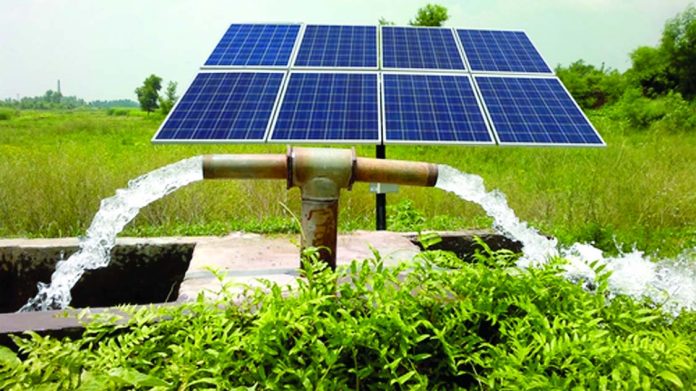Agros Secures $4.25M in Series A Funding to Expand Solar Irrigation in Southeast Asia

In a transformative move for sustainable agriculture in Southeast Asia, Agros, a clean energy agritech startup, has secured $4.25 million in Series A funding to scale its solar-powered irrigation systems across the region. This investment marks a significant leap forward in the battle against climate change, water scarcity, and inefficient farming practices that plague millions of smallholder farmers.
As climate uncertainty continues to disrupt traditional farming, innovative companies like Agros are bridging the gap between technology and nature, empowering rural communities with affordable, green solutions that ensure crop productivity and economic resilience.
🌍 Why Southeast Asia Needs Solar Irrigation
Southeast Asia is home to over 100 million smallholder farmers, many of whom rely on erratic rainfall or expensive diesel-powered pumps to irrigate their crops. Agriculture accounts for around 70% of freshwater withdrawals globally, and in this region, inefficient irrigation methods lead to both water waste and increased greenhouse gas emissions.
In countries like Vietnam, Indonesia, the Philippines, and Cambodia, rural areas often lack access to reliable electricity. This makes solar-powered irrigation systems a game-changer, offering a clean, consistent, and cost-effective alternative to fossil fuels.
Agros saw this gap—and opportunity—and built its business model around climate-resilient irrigation technology that doesn’t just deliver water, but transforms entire livelihoods.
💡 The Agros Solution: Solar Meets Smart Farming
At the heart of Agros’s solution is a modular solar irrigation system combined with smart sensors, IoT connectivity, and mobile app integration. This allows farmers to:
- Monitor soil moisture in real-time
- Automate irrigation schedules
- Reduce water and energy use
- Lower crop failure risks due to drought or overwatering
Their plug-and-play system is easy to install, maintain, and scale, making it ideal for small and mid-sized farms with limited technical resources. Agros also provides financing options to reduce the barrier to entry.
According to Agros CEO Arjun Rao, the goal is not just technology adoption, but systemic change in how rural farming is approached in developing economies.
“We want to make sustainable farming profitable. With solar irrigation, we are replacing diesel pumps, reducing emissions, and improving crop yields—all while putting more money into the hands of farmers,” Rao said in a recent TechCrunch interview.
💰 Inside the $4.25M Series A Funding Round
Agros’s recent $4.25 million Series A round was led by EarthVentures, a climate-focused investment firm based in Singapore. Participating investors also included Golden Seeds Ventures, AgFunder, and Social Impact Capital.
This capital infusion will be used to:
- Expand Agros’s solar irrigation reach in Southeast Asia
- Strengthen R&D for hardware durability and data intelligence
- Build partnerships with local governments and NGOs
- Support training and support networks for rural adoption
The company plans to deploy over 10,000 solar irrigation units by the end of 2026, with a focus on high-impact zones in Indonesia, Vietnam, and the Philippines.
📎 Learn more about EarthVentures and their impact investments.
📈 Results So Far: Cost Savings, Higher Yields, and Clean Energy Impact
Agros has already piloted its systems in more than 1,000 farms across the Philippines and Vietnam. The results have been impressive:
- 🔋 75% reduction in irrigation energy costs
- 🌱 40% average increase in crop yield
- 💧 30% less water used per hectare
- 📉 Zero greenhouse emissions from irrigation operations
Farmers switching from diesel pumps have saved $500–$800 annually, a significant sum in rural economies.
Moreover, Agros reports that fields irrigated with their systems tend to show improved soil health due to reduced overwatering, and more resilient harvests during dry spells.
This data is especially promising as climate shocks—from floods to droughts—become more frequent in tropical zones.
🌱 Empowering Women and Smallholders
Another highlight of Agros’s model is its strong emphasis on equitable access. The company actively works with female farmers, who often lack access to credit, training, and tools.
Through a network of local partners and cooperatives, Agros provides:
- Group training in sustainable water management
- Support in applying for green agriculture subsidies
- Micro-loans and installment-based payment models
This approach is in line with UN Sustainable Development Goals related to gender equality, climate action, and zero hunger.
🤝 Government and NGO Partnerships
Agros’s expansion strategy goes beyond private markets. The startup is building strong ties with local governments and development organizations to scale its impact.
For instance:
- In Vietnam, Agros is part of a public-private partnership to improve irrigation in the Mekong Delta.
- In Indonesia, the Ministry of Agriculture is reviewing Agros systems for use in its climate-resilient farm pilot zones.
- In the Philippines, Agros is collaborating with USAID on a rural electrification project using solar tech.
These partnerships make Agros not just a product provider—but a policy-aligned climate partner.
🔮 What’s Next for Agros?
Looking ahead, Agros aims to:
- Expand to South Asia (India, Bangladesh, Nepal) by 2027
- Launch an AI-powered smart farming dashboard
- Develop larger-scale systems for agribusiness plantations
- Partner with climate funds to offer 0-interest loans for the poorest farming communities
In the words of COO Meera Subramaniam, the company’s vision is bold but achievable:
“We are building an ecosystem where every farmer—no matter how remote—can irrigate sustainably, grow profitably, and adapt to a warming world.”
This vision positions Agros as a leader in the climate-smart agriculture revolution, aligning technology with both profitability and planetary health.
📌 Key Takeaways
- Agros raised $4.25M Series A to scale solar irrigation in Southeast Asia
- The company’s tech boosts yields, saves water, and replaces diesel pumps
- Farmers save $500+ per year and cut emissions to zero from irrigation
- Focus areas: Philippines, Vietnam, Indonesia—with South Asia next
- Strong partnerships with governments, NGOs, and women-led farms
🌐 Learn More
Here are a few valuable external resources related to this topic:





